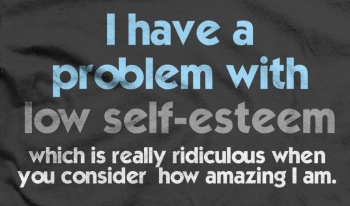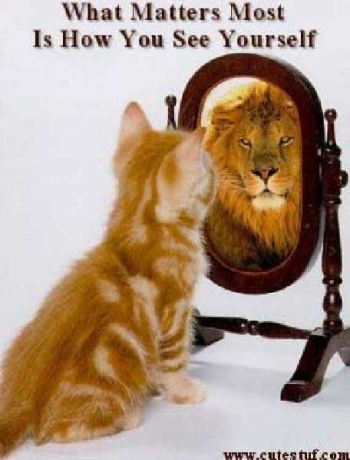Many advice manuals, often called “self-help books”, provide various tips on how to succeed in the modern world, how to live life to the full and how to find the happiness we all desire. A common topic expounded by most of these manuals concerns “self-confidence”, the perceived corner stone of any successful career in most industries. Much of the discussion on “self-confidence” centres on having faith in our identities, reasserting our sense of self and developing knowledge that “we” are capable and possess all the potential for success. Such practices explain self-confidence as if it was inseparable from a belief in distinct, rarefied selves and may seem incompatible with the Buddhist doctrine of non-self. From the outside, it would seem that Buddhism leaves its followers at a distinct disadvantage in a world that requires us to be assertive and self-assured.
This idea of self-confidence and self-assurance is often tied to a deeper practice of “finding oneself”. “Finding the self” has become the new goal of living. It is easily tied to a career that requires self-confidence and therefore this is a philosophy that can suit the demands of many a modern lifestyle. Due to our constant exposure to these ideas, it is quite common for people to assume that those who believe in Buddhism, in particular its doctrine of non-self, will be soft individuals, lacking the necessary self-confidence to face the challenges of a competitive world. Buddhist masters are often characterised as softly spoken sages, who do not follow their own desires but simply watch the world arise and fall away. I know that I certainly had misconceptions similar to these and in meditation sessions I would talk to my fellow practitioners in such a soft voice that it was difficult for anyone to hear me! It was a shock for me to go to Thailand and see much respected abbots barking orders at the younger monks! It seemed to contradict the soft Buddhism that I had expected to find.
I saw that these older monks were very clear and almost authoritative in their actions. I wondered how could their practice of seeing through the delusion of self lead to such confidence and assurance.
I saw that these older monks were very clear and almost authoritative in their actions. I wondered how could their practice of seeing through the delusion of self lead to such confidence and assurance.

















